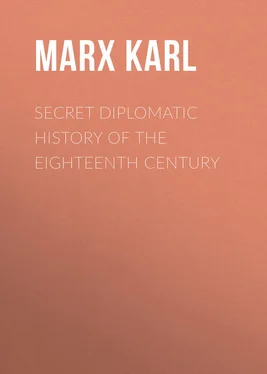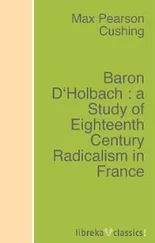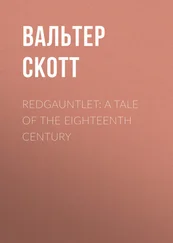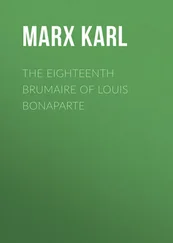Karl Marx - Secret Diplomatic History of The Eighteenth Century
Здесь есть возможность читать онлайн «Karl Marx - Secret Diplomatic History of The Eighteenth Century» — ознакомительный отрывок электронной книги совершенно бесплатно, а после прочтения отрывка купить полную версию. В некоторых случаях можно слушать аудио, скачать через торрент в формате fb2 и присутствует краткое содержание. Жанр: literature_19, foreign_antique, foreign_prose, на английском языке. Описание произведения, (предисловие) а так же отзывы посетителей доступны на портале библиотеки ЛибКат.
- Название:Secret Diplomatic History of The Eighteenth Century
- Автор:
- Жанр:
- Год:неизвестен
- ISBN:нет данных
- Рейтинг книги:4 / 5. Голосов: 1
-
Избранное:Добавить в избранное
- Отзывы:
-
Ваша оценка:
- 80
- 1
- 2
- 3
- 4
- 5
Secret Diplomatic History of The Eighteenth Century: краткое содержание, описание и аннотация
Предлагаем к чтению аннотацию, описание, краткое содержание или предисловие (зависит от того, что написал сам автор книги «Secret Diplomatic History of The Eighteenth Century»). Если вы не нашли необходимую информацию о книге — напишите в комментариях, мы постараемся отыскать её.
Secret Diplomatic History of The Eighteenth Century — читать онлайн ознакомительный отрывок
Ниже представлен текст книги, разбитый по страницам. Система сохранения места последней прочитанной страницы, позволяет с удобством читать онлайн бесплатно книгу «Secret Diplomatic History of The Eighteenth Century», без необходимости каждый раз заново искать на чём Вы остановились. Поставьте закладку, и сможете в любой момент перейти на страницу, на которой закончили чтение.
Интервал:
Закладка:
If we would take a true survey of men, and lay them open in a proper light to the eye of our intellects, we must first consider their natures and then their ends ; and by this method of examination, though their conduct is, seemingly, full of intricate mazes and perplexities, and winding round with infinite meanders of state-craft, we shall be able to dive into the deepest recesses, make our way through the most puzzling labyrinths, and at length come to the most abstruse means of bringing about the master secrets of their minds, and to unriddle their utmost mysteries… The Czar … is, by nature, of a great and enterprising spirit, and of a genius thoroughly politic; and as for his ends, the manner of his own Government, where he sways arbitrary lord over the estates and honours of his people, must make him, if all the policies in the world could by far-distant aims promise him accession and accumulation of empire and wealth, be everlastingly laying schemes for the achieving of both with the extremest cupidity and ambition. Whatever ends an insatiate desire of opulency, and a boundless thirst for dominion, can ever put him upon, to satisfy their craving and voracious appetites, those must, most undoubtedly, be his.
The next questions we are to put to ourselves are these three:
1. By what means can he gain these ends?
2. How far from him, and in what place, can these ends be best obtained?
3. And by what time, using all proper methods and succeeding in them, may he obtain these ends?
The possessions of the Czar were prodigious, vast in extent; the people all at his nod, all his downright arrant slaves, and all the wealth of the country his own at a word's command. But then the country, though large in ground, was not quite so in produce. Every vassal had his gun, and was to be a soldier upon call; but there was never a soldier among them, nor a man that understood the calling; and though he had all their wealth, they had no commerce of consequence, and little ready money; and consequently his treasury, when he had amassed all he could, very bare and empty. He was then but in an indifferent condition to satisfy those two natural appetites, when he had neither wealth to support a soldiery, nor a soldiery trained in the art of war. The first token this Prince gave of an aspiring genius, and of an ambition that is noble and necessary in a monarch who has a mind to flourish, was to believe none of his subjects more wise than himself, or more fit to govern. He did so, and looked upon his own proper person as the most fit to travel out among the other realms of the world and study politics for the advancing of his dominions. He then seldom pretended to any warlike dispositions against those who were instructed in the science of arms; his military dealings lay mostly with the Turks and Tartars, who, as they had numbers as well as he, had them likewise composed, as well as his, of a rude, uncultivated mob, and they appeared in the field like a raw, undisciplined militia. In this his Christian neighbours liked him well, insomuch as he was a kind of stay or stopgap to the infidels. But when he came to look into the more polished parts of the Christian world, he set out towards it, from the very threshold, like a natural-born politician. He was not for learning the game by trying chances and venturing losses in the field so soon; no, he went upon the maxim that it was, at that time of day, expedient and necessary for him to carry, like Samson, his strength in his head, and not in his arms
Конец ознакомительного фрагмента.
Текст предоставлен ООО «ЛитРес».
Прочитайте эту книгу целиком, купив полную легальную версию на ЛитРес.
Безопасно оплатить книгу можно банковской картой Visa, MasterCard, Maestro, со счета мобильного телефона, с платежного терминала, в салоне МТС или Связной, через PayPal, WebMoney, Яндекс.Деньги, QIWI Кошелек, бонусными картами или другим удобным Вам способом.
1
This letter relates to the war against Turkey, commenced by the Empress Ann in 1735. The British diplomatist at St. Petersburg is reporting about his endeavours to induce Russia to conclude peace with the Turks. The passages omitted are irrelevant.
2
England was at that time negotiating a commercial treaty with Russia.
3
To this time it has remained among historians a point of controversy, whether or not Panin was in the pay of Frederick II. of Prussia, and whether he was so behind the back of Catherine, or at her bidding. There can exist no doubt that Catherine II., in order to identify foreign Courts with Russian Ministers, allowed Russian Ministers ostensibly to identify themselves with foreign Courts. As to Panin in particular, the question is, however, decided by an authentic document which we believe has never been published. It proves that, having once become the man of Frederick II., he was forced to remain so at the risk of his honour, fortune and life.
4
The Russian Minister at London.
5
The oligarchic Constitution set up by the Senate after the death of Charles XII.
6
Thus we learn from Sir George Macartney that what is commonly known as Lord Chatham's "grand conception of the Northern Alliance," was, in fact, Panin's "grand scheme of uniting the Powers of the North." Chatham was duped into fathering the Muscovite plan.
7
The compact between the Bourbons of France and Spain concluded at Paris on August, 1761.
8
This was a subterfuge on the part of Frederick II. The manner in which Frederick was forced into the arms of the Russian Alliance is plainly told by M. Koch, the French professor of diplomacy and teacher of Talleyrand. "Frederick II.," he says, "having been abandoned by the Cabinet of London, could not but attach himself to Russia." (See his History of the Revolutions in Europe .)
9
Horace Walpole characterises his epoch by the words – " It was the mode of the times to be paid by one favour for receiving another. " At all events, it will be seen from the text that such was the mode of Russia in transacting business with England. The Earl of Sandwich, to whom Sir George Macartney could dare to address the above despatch, distinguished himself, ten years later, in 1775, as First Lord of the Admiralty, in the North Administration, by the vehement opposition he made to Lord Chatham's motion for an equitable adjustment of the American difficulties . "He could not believe it (Chatham's motion) the production of a British peer ; it appeared to him rather the work of some American ." In 1777, we find Sandwich again blustering: "he would hazard every drop of blood, as well as the last shilling of the national treasure, rather than allow Great Britain to be defied, bullied, and dictated to, by her disobedient and rebellious subjects." Foremost as the Earl of Sandwich was in entangling England in war with her North American colonies, with France, Spain, and Holland, we behold him constantly accused in Parliament by Fox, Burke, Pitt, etc., "of keeping the naval force inadequate to the defence of the country; of intentionally opposing small English forces where he knew the enemy to have concentrated large ones; of utter mismanagement of the service in all its departments," etc. (See debates of the House of Commons of 11th March, 1778; 31st March, 1778; February, 1779; Fox's motion of censure on Lord Sandwich; 9th April, 1779, address to the King for the dismissal of Lord Sandwich from his service, on account of misconduct in service; 7th February, 1782, Fox's motion that there had been gross mismanagement in the administration of naval affairs during the year 1781.) On this occasion Pitt imputed to Lord Sandwich "all our naval disasters and disgraces." The ministerial majority against the motion amounted to only 22 in a House of 388. On the 22nd February, 1782, a similar motion against Lord Sandwich was only negatived by a majority of 19 in a House of 453. Such, indeed, was the character of the Earl of Sandwich's Administration that more than thirty distinguished officers quitted the naval service, or declared they could not act under the existing system. In point of fact, during his whole tenure of office, serious apprehensions were entertained of the consequences of the dissensions then prevalent in the navy. Besides, the Earl of Sandwich was openly accused, and, as far as circumstantial evidence goes, convicted of Peculation. (See debates of the House of Lords, 31st March, 1778; 9th April, 1779, and seq. ) When the motion for his removal from office was negatived on April 9th 1779, thirty-nine peers entered their protest.
Читать дальшеИнтервал:
Закладка:
Похожие книги на «Secret Diplomatic History of The Eighteenth Century»
Представляем Вашему вниманию похожие книги на «Secret Diplomatic History of The Eighteenth Century» списком для выбора. Мы отобрали схожую по названию и смыслу литературу в надежде предоставить читателям больше вариантов отыскать новые, интересные, ещё непрочитанные произведения.
Обсуждение, отзывы о книге «Secret Diplomatic History of The Eighteenth Century» и просто собственные мнения читателей. Оставьте ваши комментарии, напишите, что Вы думаете о произведении, его смысле или главных героях. Укажите что конкретно понравилось, а что нет, и почему Вы так считаете.












